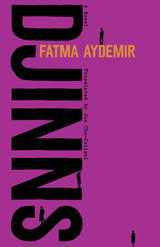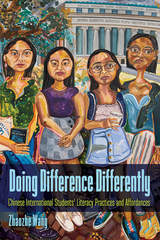7 books about University of Wisconsin--Madison
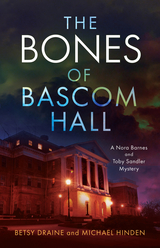
The Bones of Bascom Hall
Betsy Draine and Michael Hinden
University of Wisconsin Press, 2024
Campus police at the University of Wisconsin–Madison are baffled by the discovery of human remains in the attic of the administration building. Drawn into the investigation, visiting professor Nora Barnes connects the bones to the Vietnam-era bombing of Sterling Hall. But someone doesn’t want her probing the past. She’s side-swiped by a car while riding a bicycle and almost crushed in the art library’s motorized book stacks. Meanwhile, her high-spirited husband, Toby Sandler, is hot on the trail of lost architectural plans drafted by Frank Lloyd Wright.
Inspired by an event that traumatized Madison and shocked the nation, this absorbing novel blends fact and fiction and is sure to delight both mystery enthusiasts and UW alumni.
Inspired by an event that traumatized Madison and shocked the nation, this absorbing novel blends fact and fiction and is sure to delight both mystery enthusiasts and UW alumni.
[more]
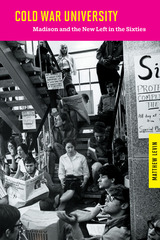
Cold War University
Madison and the New Left in the Sixties
Matthew Levin
University of Wisconsin Press, 2013
As the Cold War between the United States and the Soviet Union escalated in the 1950s and 1960s, the federal government directed billions of dollars to American universities to promote higher enrollments, studies of foreign languages and cultures, and, especially, scientific research. In Cold War University, Matthew Levin traces the paradox that developed: higher education became increasingly enmeshed in the Cold War struggle even as university campuses became centers of opposition to Cold War policies. The partnerships between the federal government and major research universities sparked a campus backlash that provided the foundation, Levin argues, for much of the student dissent that followed. At the University of Wisconsin in Madison, one of the hubs of student political activism in the 1950s and 1960s, the protests reached their flashpoint with the 1967 demonstrations against campus recruiters from Dow Chemical, the manufacturers of napalm.
Levin documents the development of student political organizations in Madison in the 1950s and the emergence of a mass movement in the decade that followed, adding texture to the history of national youth protests of the time. He shows how the University of Wisconsin tolerated political dissent even at the height of McCarthyism, an era named for Wisconsin's own virulently anti-Communist senator, and charts the emergence of an intellectual community of students and professors that encouraged new directions in radical politics. Some of the events in Madison—especially the 1966 draft protests, the 1967 sit-in against Dow Chemical, and the 1970 Sterling Hall bombing—have become part of the fabric of "The Sixties," touchstones in an era that continues to resonate in contemporary culture and politics.
[more]
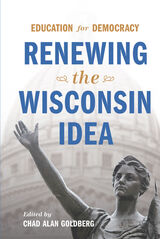
Education for Democracy
Renewing the Wisconsin Idea
Edited by Chad Alan Goldberg
University of Wisconsin Press, 2020
American public universities were founded in a civic tradition that differentiated them from their European predecessors—steering away from the pursuit of knowledge for its own sake. Like many such higher education institutions across the United States, the University of Wisconsin’s mission, known as the Wisconsin Idea, emphasizes a responsibility to serve the needs of the state and its people. This commitment, which necessarily requires a pledge to academic freedom, has recently been openly threatened by state and federal actors seeking to dismantle a democratic and expansive conception of public service.
Using the Wisconsin Idea as a lens, Education for Democracy argues that public higher education institutions remain a bastion of collaborative problem solving. Examinations of partnerships between the state university and people of the state highlight many crucial and lasting contributions to issues of broad public concern such as conservation, LGBTQ+ rights, and poverty alleviation. The contributors restore the value of state universities and humanities education as a public good, contending that they deserve renewed and robust support.
Using the Wisconsin Idea as a lens, Education for Democracy argues that public higher education institutions remain a bastion of collaborative problem solving. Examinations of partnerships between the state university and people of the state highlight many crucial and lasting contributions to issues of broad public concern such as conservation, LGBTQ+ rights, and poverty alleviation. The contributors restore the value of state universities and humanities education as a public good, contending that they deserve renewed and robust support.
[more]
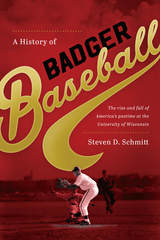
A History of Badger Baseball
The Rise and Fall of America's Pastime at the University of Wisconsin
Steven D. Schmitt
University of Wisconsin Press, 2017
For more than a century, the University of Wisconsin fielded baseball teams. This comprehensive history combines colorful stories from the archives, interviews with former players and coaches, a wealth of historic photographs, and the statistics beloved by fans of the game. The earliest intercollegiate varsity sport at Wisconsin, the baseball team was founded in 1870, less than a decade after the start of the Civil War. It dominated its first league, made an unprecedented trip to Japan in 1909, survived Wisconsin's chilly spring weather, two world wars, and perennial budget crises, producing some of the finest players in Big Ten history—and more than a few major leaguers. Fan traditions included torchlight parades, kazoos, and the student band playing "A Hot Time in the Old Town Tonight" as early as 1901.
There is painful history here, too. African Americans played on Wisconsin's first Big Ten championship team in 1902, including team captain Julian Ware, but there were none on the team between 1904 and 1960. Heartbreaking to many fans was the 1991 decision to discontinue baseball as a varsity sport at the university. Today, Wisconsin is the only member of the Big Ten conference without a men's baseball team.
Appendixes provide details of team records and coaches, All Big Ten and All American selections, Badgers in the major leagues, and Badgers in the amateur free-agent draft.
There is painful history here, too. African Americans played on Wisconsin's first Big Ten championship team in 1902, including team captain Julian Ware, but there were none on the team between 1904 and 1960. Heartbreaking to many fans was the 1991 decision to discontinue baseball as a varsity sport at the university. Today, Wisconsin is the only member of the Big Ten conference without a men's baseball team.
Appendixes provide details of team records and coaches, All Big Ten and All American selections, Badgers in the major leagues, and Badgers in the amateur free-agent draft.
[more]

Madison in the Sixties
Stuart D. Levitan
Wisconsin Historical Society Press, 2018
Madison made history in the sixties.
Landmark civil rights laws were passed. Pivotal campus protests were waged. A spring block party turned into a three-night riot. Factor in urban renewal troubles, a bitter battle over efforts to build Frank Lloyd Wright’s Monona Terrace, and the expanding influence of the University of Wisconsin, and the decade assumes legendary status.
In this first-ever comprehensive narrative of these issues—plus accounts of everything from politics to public schools, construction to crime, and more—Madison historian Stuart D. Levitan chronicles the birth of modern Madison with style and well-researched substance. This heavily illustrated book also features annotated photographs that document the dramatic changes occurring downtown, on campus, and to the Greenbush neighborhood throughout the decade. Madison in the Sixties is an absorbing account of ten years that changed the city forever.
Landmark civil rights laws were passed. Pivotal campus protests were waged. A spring block party turned into a three-night riot. Factor in urban renewal troubles, a bitter battle over efforts to build Frank Lloyd Wright’s Monona Terrace, and the expanding influence of the University of Wisconsin, and the decade assumes legendary status.
In this first-ever comprehensive narrative of these issues—plus accounts of everything from politics to public schools, construction to crime, and more—Madison historian Stuart D. Levitan chronicles the birth of modern Madison with style and well-researched substance. This heavily illustrated book also features annotated photographs that document the dramatic changes occurring downtown, on campus, and to the Greenbush neighborhood throughout the decade. Madison in the Sixties is an absorbing account of ten years that changed the city forever.
[more]
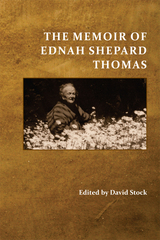
The Memoir of Ednah Shepard Thomas
Ednah Shepard Thomas
University Press of Colorado, 2017
The Memoir of Ednah Shepard Thomas offers an in-depth look at what it was to be a Writing Program Administrator during the period from after World War II up to the time of the early 1970s, a time for which we have little in the way of documentation for the work of early WPAs. Written at a time when the civil rights movement and the women's movement were just beginning to influence the way one thought and wrote about issues of race, class, and gender, this memoir offers insights into a period of time when the field was only beginning to come into focus. A foreword by Susan McLeod, an introduction and extensive footnotes by David Stock, and an afterword by David Fleming contextualize the memoir and highlight its relevance to scholars, teachers, and program administrators in composition-rhetoric. As a local history of writing program administration in its pre-professional era, the memoir offers a vital counternarrative to David Fleming's (2011) award-winning account of the abolition of UW-Madison's Freshman English program in 1969-70.
[more]

Once a Professor
A Memoir of Teaching in Turbulent Times
Jerry Apps
Wisconsin Historical Society Press, 2018
Farm boy professor shares a life of lessons.
“I never wanted to be a professor,” writes Jerry Apps in the introduction to Once a Professor. Yet a series of unexpected events and unplanned experiences put him on an unlikely path—and led to a thirty-eight-year career at the University of Wisconsin.
In this continuation of the Apps life story begun in his childhood memoir Limping through Life, Wisconsin’s celebrated rural storyteller shares stories from his years at the University of Wisconsin–Madison from 1957 to 1995, when he left the university to lecture and write fulltime. During those years Apps experienced the turmoil of protests and riots at the UW in the 1960s, the struggles of the tenure process and faculty governance, and the ever-present pressure to secure funding for academic research and programs.
Through it all, the award-winning writer honed a personal philosophy of education—one that values critical thinking, nontraditional teaching approaches, and hands-on experiences outside of the classroom. Colorful characters, personal photos, and journal entries from the era enrich this account of an unexpected campus career.
“I never wanted to be a professor,” writes Jerry Apps in the introduction to Once a Professor. Yet a series of unexpected events and unplanned experiences put him on an unlikely path—and led to a thirty-eight-year career at the University of Wisconsin.
In this continuation of the Apps life story begun in his childhood memoir Limping through Life, Wisconsin’s celebrated rural storyteller shares stories from his years at the University of Wisconsin–Madison from 1957 to 1995, when he left the university to lecture and write fulltime. During those years Apps experienced the turmoil of protests and riots at the UW in the 1960s, the struggles of the tenure process and faculty governance, and the ever-present pressure to secure funding for academic research and programs.
Through it all, the award-winning writer honed a personal philosophy of education—one that values critical thinking, nontraditional teaching approaches, and hands-on experiences outside of the classroom. Colorful characters, personal photos, and journal entries from the era enrich this account of an unexpected campus career.
[more]
READERS
Browse our collection.
PUBLISHERS
See BiblioVault's publisher services.
STUDENT SERVICES
Files for college accessibility offices.
UChicago Accessibility Resources
home | accessibility | search | about | contact us
BiblioVault ® 2001 - 2024
The University of Chicago Press



